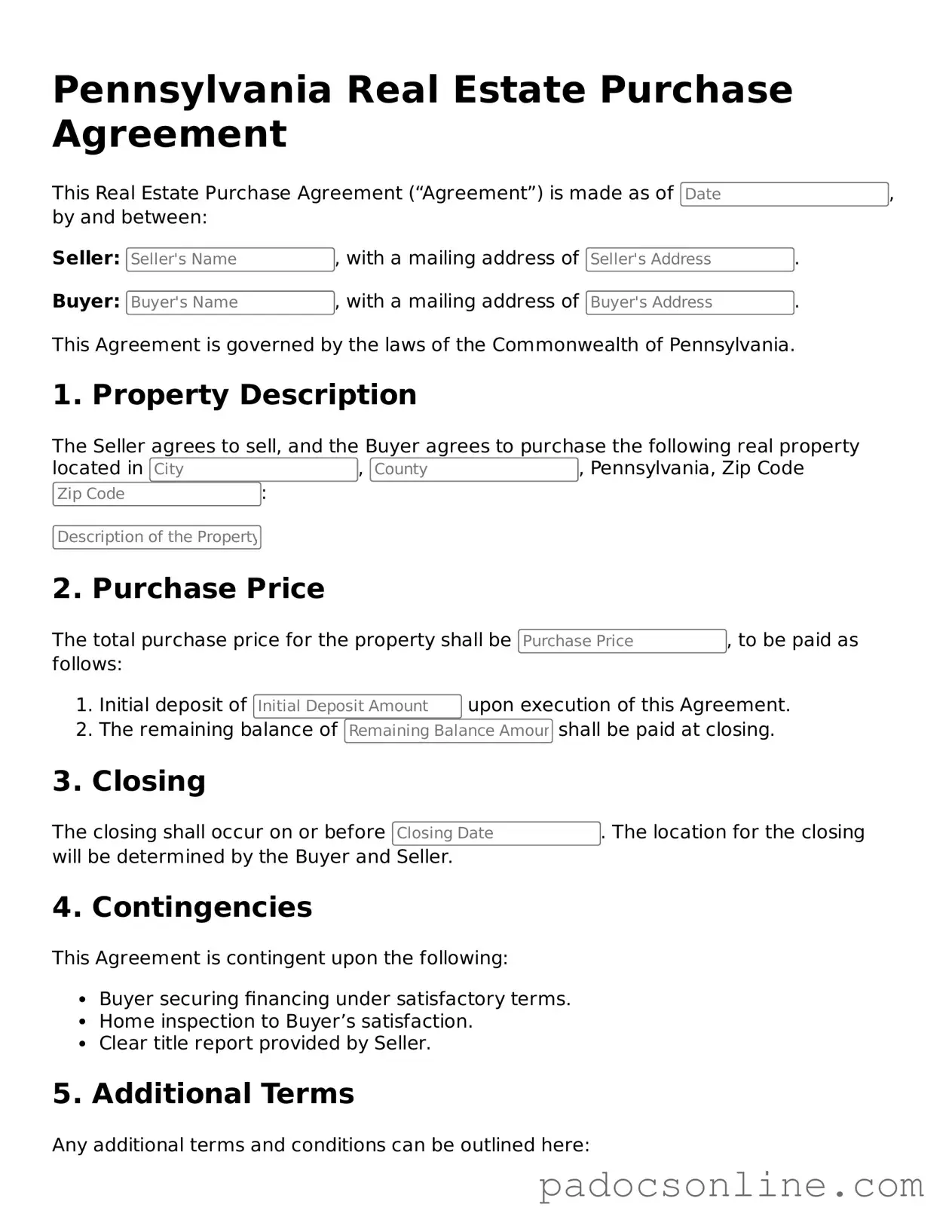Legal Real Estate Purchase Agreement Document for the State of Pennsylvania
The Pennsylvania Real Estate Purchase Agreement is a legal document used to outline the terms and conditions of a real estate transaction between a buyer and a seller. This form serves as a binding contract that details the obligations of both parties, including the purchase price and any contingencies. Understanding this agreement is essential for anyone involved in buying or selling property in Pennsylvania.
To get started on your real estate journey, fill out the form by clicking the button below.
Fill Out My Form Now

Legal Real Estate Purchase Agreement Document for the State of Pennsylvania
Fill Out My Form Now
You’re almost done with this form
Edit Real Estate Purchase Agreement online fast and paper-free.
Fill Out My Form Now
or
Download Real Estate Purchase Agreement
